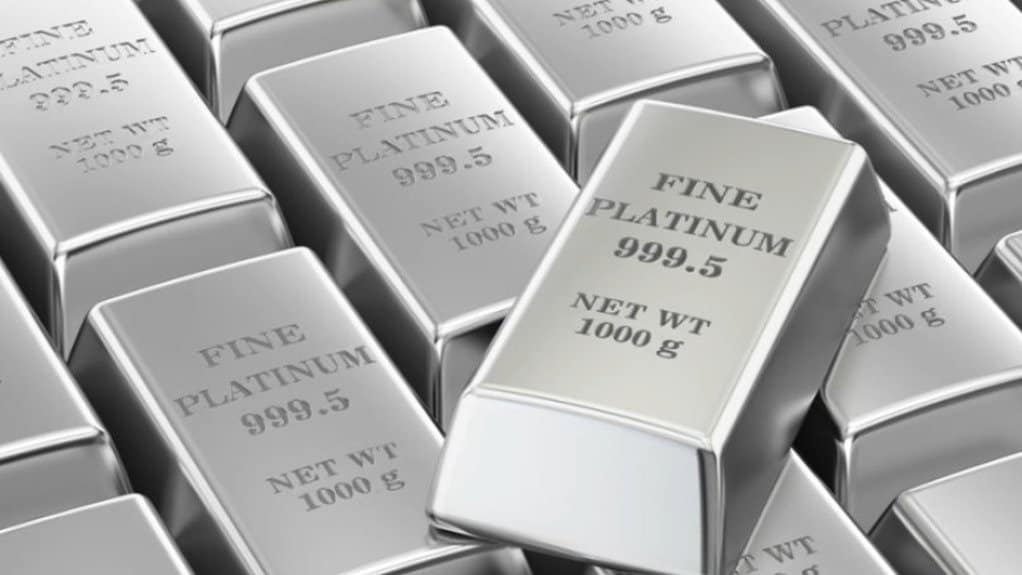The China Securities Regulatory Commission has approved the launch of platinum and palladium futures and options contracts on the Guangzhou Futures Exchange, Heraeus reports.
The contracts will accept both sponge and ingot forms of the metals for physical delivery, a world-first among major futures exchanges, Heraeus states in its latest precious metals appraisal publication.
The derivatives are expected to strengthen domestic hedging capability and improve price discovery, the Hanau-based precious metals company reports.
Over time, the development should broaden market participation, increase liquidity and establish an onshore pricing reference for platinum group metals (PGMs).
This comes amid a period of significant structural adjustment in China’s platinum market, following the removal of VAT exemption on platinum imports on November 1.
The policy changes triggered a surge in trading activity on the Shanghai Gold Exchange, with volumes hitting a four-month high and averaging 982 kg a day in the week of 20 October and driving one-month platinum lease rates to 25%.
However, since the VAT exemption took effect, turnover has retreated sharply, averaging just 30 kg a day since November 1.
Mining Weekly can report that China, the single largest consumer of platinum globally, accounted for close to 30% of global platinum demand in 2024. The breakdown for 2024 was automotive demand 17%; jewellery demand 20%; industrial demand 31%; investment demand 32%, which accounts for 64% of total bar and coin demand, including investment bars equal to or above 500 g. China is also increasingly globally dominant in several PGM-consuming industries.
As reported by Mining Weekly earlier this year, the availability of platinum and palladium in ingot and sponge form is seen as a central point of the exchange trading of Guangzhou Futures Exchange, which has a focus on green commodities essential for the energy transition.
The ability to take delivery of sponge is seen as being transformative for industrial users of PGMs as well as automakers, as this is the main form typically used for their manufacturing purposes. No other exchange in the world allows delivery of sponge.
Other benefits of Guangzhou Futures Exchange’s futures are its potentially including provision of a mechanism for businesses to hedge price risk and better manage their operations, something which is currently not freely accessible in China. For example, the removal of price risk will allow platinum jewellery and investment product fabricators to reduce the premium charged for platinum products as well as the discount on buyback.
On the rhodium, ruthenium and iridium PGMs front, Heraeus quotes DigiTimes as reporting that hardware and semiconductor makers are struggling to keep pace with surging AI-related demand, with reports indicating delivery lead times of more than two years for hard disk drives.
In response, major cloud service providers are ramping up orders of solid-state drives to offset supply shortages, despite solid-state drives being a more expensive option.
Hard disk drive production capacity remains severely constrained, unable to meet near-term demand and reflected in the rising average selling price of the drives.
Heraeus reports that the situation has been compounded by the industry’s post-Covid shift to a build-to-order strategy, which limits inventory buffers and flexibility in scaling output. Despite market conditions, leading manufacturers have not drastically increased capital expenditures.
If robust demand extends into 2026, disk manufacturers may ramp up production, which would translate into higher demand for ruthenium. Prices for all three small PGMs remained stable last week.
On the palladium and rhodium front, Heraeus reports that demand for these two PGMs in autocatalysts in China has come up against battery electric vehicle (BEV) sales exceeding 50% of all car sales for the first time in October, according to the China Association of Automobile Manufacturers.
China’s overall BEV market rose by 8.8% year-on-year to 3.3-million units in October, when exports shipments were also strong and government trade-in subsidies drove domestic light-vehicle sales growth.
The precious metals products of Heraeus, which has five trading and 15 production and recycling sites, are used in a wide variety of industries, including automotive, chemicals, semiconductor, pharmaceutical, hydrogen and jewellery.



